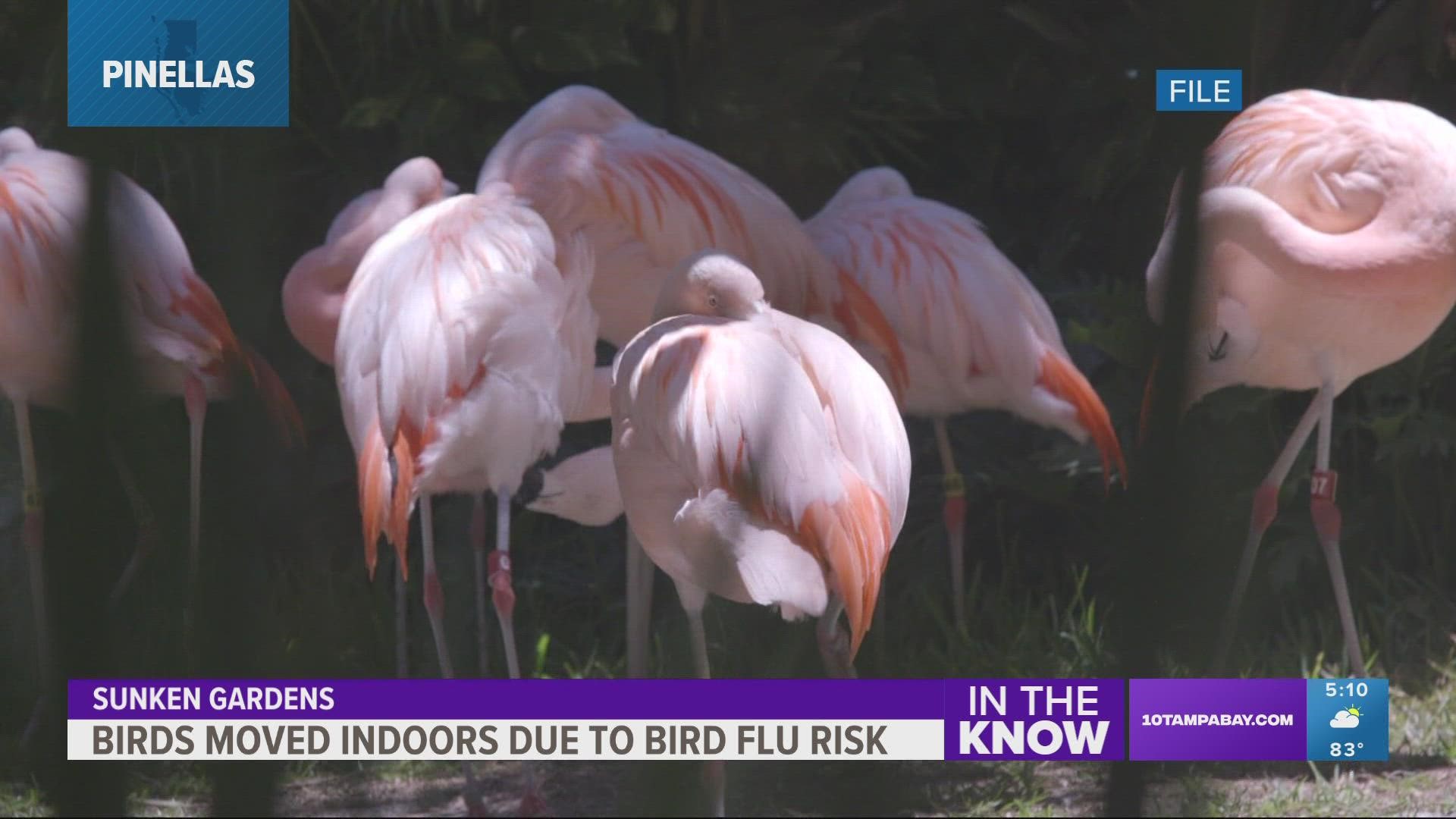ST. PETERSBURG, Fla. — There's a lot less squawking and chatter lately at the city's classic Sunken Gardens.
Staff recently moved its flamboyance of flamingos and pandemonium of parrots from public view on 4th Street North amid the nationwide outbreak of avian influenza, otherwise known as bird flu. Visitors to its website find a message stating that the birds "will predominantly remain indoors and off exhibit until the situation improves."
The Florida Fish and Wildlife Conservation Commission recently confirmed cases of the highly pathogenic avian influenza (HPAI) in black vultures and Muscovy ducks. Health and wildlife officials say there are no known human infections of HPAI in North America.
Sunken Gardens' 31 birds were relocated to indoor holding areas earlier this month and will remain there for the time being, said Dwayne Biggs, the museum's supervisor.
It so far appears all are "doing well and healthy with no signs of being affected by the local outbreak," he added.
The Sunken Gardens is one of the latest venues that has taken steps to protect its animals. In late April, signs went up at ZooTampa at Lowry Park advising visitors that some aviaries and bird exhibits are closed. A confirmed case of bird flu in Hillsborough County prompted officials to look at each species to determine which birds needed to be moved to safety.
"The safety of our animals, many of which are species that are under threat of extinction, is our utmost priority and we have proactive plans in place for various scenarios," said Cynthia Stringfield, Sr. Director of Animal Health, Education and Conservation at ZooTampa.
Florida ranks No. 3 in the U.S. in terms of the number of confirmed HPAI infections at 107, according to the Department of Agriculture. There are likely many more cases not confirmed.

